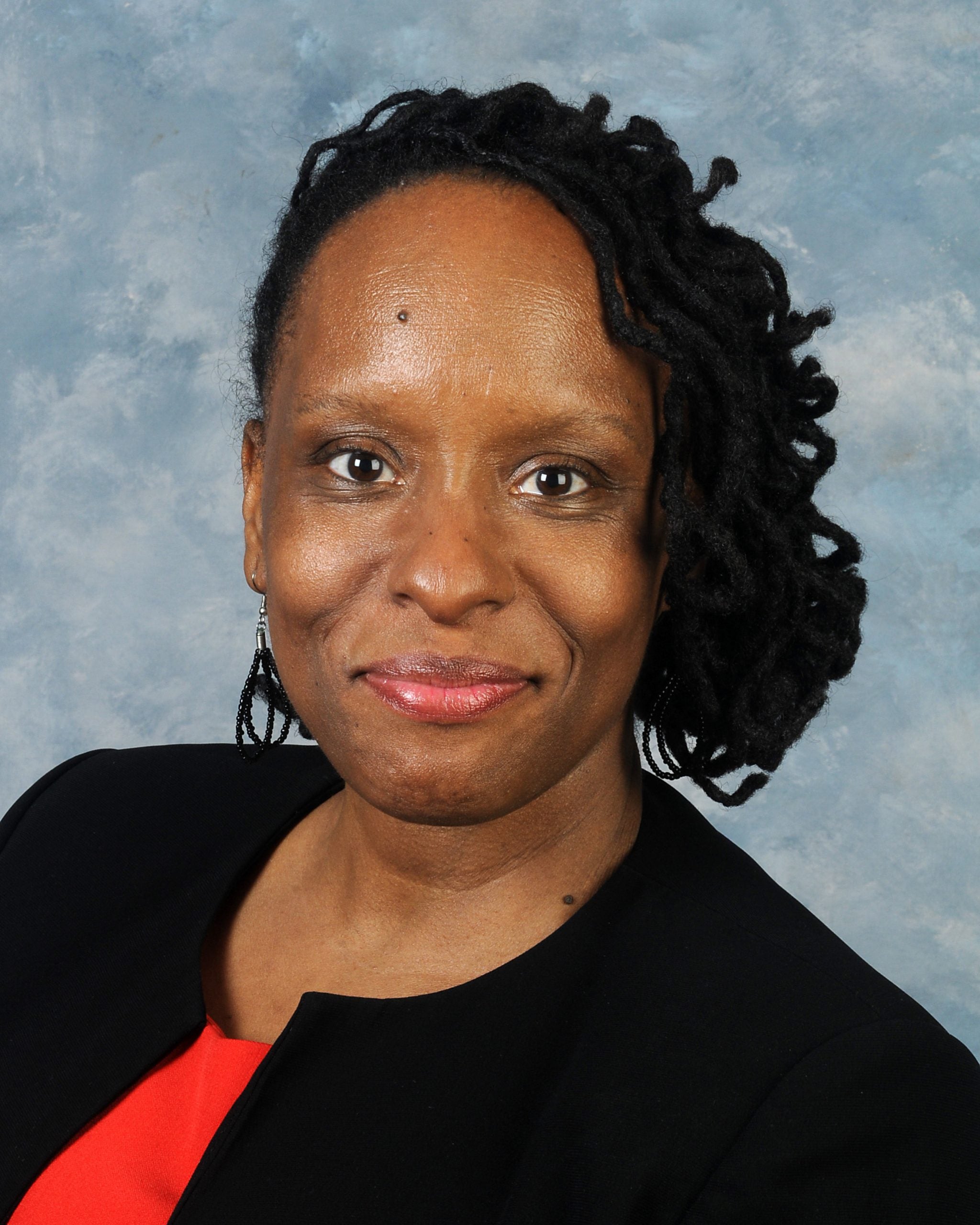It’s Black Maternal Health Week and the perfect time to shine the spotlight on some of the many Black women in politics who are working hard to make a difference that will last.
Yes, the statistics surrounding Black women and maternal health are grim— Black women are three to four times more likely to experience a pregnancy-related death or preventable maternal death than white women—but continuing to combat and call out systemic racial inequities and implicit bias in the medical community can and will have a long-term effect on increasing more Black women’s health outcomes.
Part of that work must happen at the federal and state levels by way of getting laws passed that will give pregnant Black women greater access to equitable care and hold medical facilities and governments accountable for its failures to us.
On Tuesday, The White House issued its first-ever presidential proclamation marking Black Maternal Health Week. Vice President Kamala Harris hosted a round table focused on racial disparities in childcare and pregnancy-related deaths to commemorate the moment.
“Make no mistake, Black women in our country are facing a maternal health crisis,” Harris said during the roundtable discussion, according to The New York Times. “Black women are two to three times more likely to die in connection with childbirth than other women.”
Harris isn’t the only lawmaker putting her power to good use in the name of Black women. After suffering her own tragic full-term pregnancy loss, Tennessee State Representative London Lamar introduced a resolution to recognize doulas as vital community health workers and bills that would further studies and reports on infant mortality.
“Sharing your story is so important,” Rep. Lamar said during an emotional Black Maternal Health focused Facebook live panel hosted by ESSENCE on Monday. “In October 2019, I lost my kid full term and almost died as a result of pregnancy, and it impacted my life. It was a very tough situation. All of the PTSD, the healing and having to go through the whole death process was very traumatizing for me and being the only woman in the Tennessee house, and of childbearing age, I felt it is my obligation to bring more awareness and policy change to making sure that Black women like myself don’t have to experience near death, or our children don’t have to die, because we want to bring children into this world.
Rep. Lamar revealed that it wasn’t until the issue hit so close to home for her fellow lawmakers that it seemed to truly open their eyes to how severe the risk is for Black women right now. “The Black maternal health crisis is something my legislators we’re hearing, and they’d say, ‘oh, well, we’re pro-life’, but until you see it and until it happens to one of your own, now you understand how big of an issue this is,” Rep. Lamar said during her appearance.
Article continues after video.
Get to know five other Black female lawmakers who, like Lamar, are doing their part to battle the Black maternal health crisis and save more lives. We asked them to share what fuels their fight, what true “change” looks like to them and what they want to see happen next in their communities and beyond.
01
Massachusetts State Representative Liz Miranda
Rep. Miranda was one of two Black women elected to the Massachusetts state house the year she became a representative. Since then she has
led and passed legislation to create a commission to reduce racial inequities in maternal health. “During my first week, I learned 6 of the 10 worst zip codes in my state for Black maternal health outcomes were in my district,” Rep. Miranda recalled. “In that moment, when I learned about the reality of what Black women face in my state, I knew that as a Black woman in the state legislature, Black maternal health care would be my issue.“
Rep. Miranda believes that ignoring the heart of the issue could be a barrier to change. “Recognition that Black maternal health is a public health crisis and advocacy from organizations who are publicly facing allies of racial justice is critical,” Rep. Miranda tells ESSENCE. “To me, change begins with fundamentally understanding that Black women’s maternal health is a maternal and racial justice issue. It’s critical that any solution centers and puts anti-racism at the forefront. As a Black woman who wants to be a mom someday, and as a lawmaker, I know these issues can’t be addressed in silos.”
For Rep. Miranda, passing Bill H.4808 was a start. “Maternal justice is racial justice, and this critical piece of legislation ensures that we are better able to approach the maternal mortality crisis as both a racial justice and public health issue,” she shared. “H.4818 establishes a commission to study maternal mortality in Massachusetts and make recommendations to address racial disparities and inequities, including but not limited to why women of color in Massachusetts are dying due to pregnancy-related causes. My hope is that we will be better able to understand both the socioeconomic determinants of health while also tackling the issue of medical racism head-on.”
02
North Carolina Senator Natalie Murdock
Senator Murdock
recently filled a bill in her state that mirrors the federal Momnibus bill to center justice and equity. “It supports community-based organizations, addresses implicit bias and social determinants of health, and examines the challenges of being pregnant and giving birth during a pandemic,” Sen. Murdock told ESSENCE. Black maternal health as a racial justice issue is core to her work. “At the state level, we need to lift up this federal work and craft legislation that will facilitate state and local implementation,” Sen. Murdock added. “Our state ranks a dismal 30th nationally regarding Black maternal mortality and on the March of Dimes’ 2019 report card our state earned a D+ on infant and maternal health in the country. These facts alone are reason enough to prioritize Black maternal health. Now layer on the COVID-19 pandemic—African Americans comprise only 13% of the total US population and comprise 30% of the COVID-19 cases. Pregnant people with COVID-19 are at an increased risk for severe illness from COVID-19 — including illness that results in ICU admission, mechanical ventilation, and death — compared with non-pregnant people. Additionally, pregnant people with COVID-19 might be at increased risk for other adverse outcomes, such as preterm birth.”
03
Michigan State Senator Erika Geiss
For Senator Geiss, the work is beyond personal. “I am honored every day to be in a position where I can speak about and work towards justice in this sphere and shape policy and legislation that will improve the lives of Black and Brown mothers,” she shared. “As a Black woman—especially in this elected position—I cannot be silent. As a Black mother, I am fighting for my growing children and everyone’s growing children. My son and daughter see that, their friends and peers see that, and they know that being a Black or Brown woman in this position and using her voice, power, and taking up space for justice is possible.”
Senator Geiss has
introduced legislation that would allow people enrolled in Medicaid to have access to doula care. “Access to doula services is critical because a significant amount of research and scholarship has shown that doula care improves maternal and infant health outcomes,” Senator Geiss tells ESSENCE. “We also need to make sure that doulas are culturally competent and that Black and Brown doulas and other Birth-workers are not pushed out of the Birth-working sphere or have their work is “ghettoized” by white women for whom using a doula is the current en vogue birthing trend if one has a certain lifestyle,” says Senator Geiss. “For us as Black and Brown women, using doulas—even if by another name—is culturally important across the diasporas. As we reclaim, embrace, and empower ourselves and continually shift the birth-working space and what birth-working care means for ourselves and our communities, we cannot let white-centered medical industry or establishment usurp, overtake, or colonize doula care and instead urge them to welcome and amplify it as we use and engage with doula care to improve Black and Brown maternal health and infant outcomes consistently.”
04
South Carolina State Representative Wendy Brawley
South Carolina State Representative Wendy Brawley introduced an
anti-bias training bill that would study disparities in Black maternal health. Rep. Brawley once had her on scary experience in the delivery room. “Thirty-nine years ago, I gave birth to my first child,” Rep. Brawley tells ESSENCE. “It was not a good pregnancy. I was scared to death. I went into the hospital in full labor. Twenty-eight hours later, having seen three doctors on rotation, suffering and crying through it all, the doctor that I saw when I first arrived saw me again, called for an x-ray and saw that with my bone structure I needed an emergency C-section. If I had continued in this state, the doctor told me neither I nor my baby would have survived.” Now Brawley hopes to do her part to ensure that what happened to her doesn’t happen to someone else. “Change for me looks like no birthing person having to go through what I went through,” said Rep. Brawley. “The studies are done, the data is here. And frankly, we never needed a study to tell us what was happening to us. We know the information and we need doctors to listen to us. Black women are dying in childbirth and I could have been one of them.”
Rep. Brawley acknowledges that others are also joining the fight and Black women need all of the help that they can get. “As a Black woman legislator, I know Black women and men — like my colleague Rep. Kambrell Garvin who introduced the
SC Dignity in Pregnancy and Childbirth Act — are sounding the alarms and leading the way,” Rep. Brawley shared. “In South Carolina, Black women comprise 13% of the state’s population, and only 7% of the state legislature. So, we need to fight better: by claiming our power and resilience, by sharing our stories and compelling our white colleagues at statehouses to act now by electing more Black women into office who will see and protect Black lives in our communities.”
05
Kentucky State Representative Attica Scott
Representative Scott, who’s been called a “reptivist”—a representative and an activist—is the state’s only Black female legislator and she has
introduced bills that would expand insurance coverage and doula care for women and incarcerated people. “When I was elected, I was the first Black woman to serve in our statehouse in nearly 20 years,” Scott told ESSENCE. “For four years, I was the only Black woman member of Kentucky’s state legislature. I bring with me experiences that none of my peers in the legislature have — from growing up in the projects to having a mom who died from an overdose of alcohol and drugs. I’m a single mother of two amazing young people. My lived experiences drive my work as a public servant, advocate, and leader in my community.” And she’s pulling from them to keep her sights set on the work ahead. “We are focused on maternal health and death because we do have a crisis in our country that is unacceptable,” added Re. Scott. “The United States currently has the highest maternal death rates in the industrialized world. Death rates in the U.S. and Kentucky are significantly higher for Black women, who are four times more likely to die from pregnancy and birth-related causes than white women. I have introduced a bill in Kentucky, the Maternal Care Act, to address racial disparities in maternal and infant mortality rates. The bill will require that we track maternal deaths, provide Medicaid reimbursement for qualified doula care, and mandate implicit bias training for perinatal medical professionals.”






